Introduction
In a world striving for sustainable and eco-friendly solutions, solar-powered cooking has emerged as a clean and efficient alternative to traditional cooking methods. By harnessing the sun’s power, solar-powered cooking solutions offer a sustainable way to prepare meals while reducing carbon emissions and minimizing reliance on fossil fuels.
Solar-powered cooking solutions, such as solar cookers, ovens, and grills, utilize the principles of solar thermal energy to capture and convert sunlight into heat for cooking. These innovative devices are designed with reflective surfaces, insulated chambers, and transparent covers to maximize solar energy absorption and heat retention. With advancements in design and technology, solar-powered cooking solutions have become more efficient, versatile, and accessible to users worldwide.
The benefits of solar-powered cooking extend beyond environmental sustainability. They offer cost savings, improved health and safety, and versatility in various outdoor settings. Furthermore, solar cooking promotes self-reliance, especially in areas with limited electricity or clean cooking fuels.
Types of Solar-Powered Cooking Solutions
Solar-powered cooking solutions come in various forms, each designed to cater to different cooking needs and environments.
- Solar Cookers: Solar cookers are the most common and versatile solar-powered cooking devices. They come in different designs, including box cookers, panel cookers, and parabolic cookers. Solar cookers use reflective surfaces to concentrate sunlight onto a cooking pot or tray. The heat produced by the intense sunlight evenly and slowly cooks the food. Solar cookers are ideal for boiling water, steaming vegetables, and slow-cooking stews or soups.
- Solar Ovens: Solar ovens are insulated boxes with transparent lids that trap sunlight and convert it into heat. They often have adjustable reflectors or mirrors to maximize solar energy collection. Solar ovens can reach higher temperatures than solar cookers, making them suitable for baking, roasting, and frying. They provide a convenient and environmentally friendly alternative to traditional oven cooking, particularly in off-grid or outdoor settings.
- Solar Grills: Solar grills utilize mirrors or reflective surfaces to focus sunlight onto a cooking surface, allowing for grilling and barbecuing without the need for charcoal or propane. Solar grills are designed to reach higher temperatures quickly, providing a satisfying grilling experience using renewable solar energy. They are famous for outdoor cooking activities and offer an eco-friendly option for cooking meat, vegetables, and other grilled foods.
- Solar-Powered Stoves: Solar-powered stoves are compact and portable devices that utilize solar energy to heat cooking pots or pans directly. These stoves often feature built-in solar panels or can connect to external solar panels for power generation. Solar-powered stoves offer a convenient solution for individuals or small groups who need quick and efficient cooking options while on the go or in off-grid locations.
Each type of solar-powered cooking solution has advantages and applications, offering users a clean, sustainable, and efficient way to prepare meals. Whether it’s slow cooking with solar cookers, baking in solar ovens, grilling with solar grills, or using solar-powered stoves for fast cooking, these innovative devices empower individuals to embrace renewable energy and enjoy delicious meals while minimizing their environmental impact.
Working Principles
The working principles of solar-powered cooking solutions revolve around harnessing solar thermal energy to generate heat for cooking.
- Solar Cookers: Solar cookers use reflective surfaces to concentrate sunlight onto a cooking pot or tray. The reflective materials, such as mirrors or reflective panels, focus sunlight onto a central point or area where the cooking vessel is placed. The concentrated sunlight transfers heat to the food, gradually cooking it over time. The enclosed design of solar cookers helps trap the heat inside, increasing cooking efficiency.
- Solar Ovens: Solar ovens are insulated boxes with transparent lids. The transparent cover allows sunlight to enter the range, while the insulation helps retain the heat generated. The dark-colored cooking pot or tray absorbs the sunlight that passes through the transparent lid. The absorbed sunlight converts into heat trapped inside the oven, creating a greenhouse effect. The heat gradually cooks the food inside the range.
- Solar Grills: Solar grills use mirrors or reflective surfaces to concentrate sunlight onto a cooking surface, typically a grill or griddle. The mirrors or reflective panels are arranged to direct sunlight towards the cooking surface. The concentrated sunlight creates intense heat, similar to a traditional grill or stovetop. Users can place food directly on the cooking surface and utilize the heat from the focused sunlight for grilling or cooking.
- Solar-Powered Stoves: Solar-powered stoves incorporate solar panels or photovoltaic cells to convert sunlight directly into electrical energy. The solar panels then capture sunlight and convert it into electricity, which powers an electric heating element. The heating element generates heat, transferred to the cooking pots or pans placed on the stove. Solar-powered stoves provide an efficient and clean way of cooking by utilizing solar energy directly.
The fundamental principle in all these solar-powered cooking solutions is to capture sunlight and convert it into heat energy for cooking. The specific design and components of each key may vary. Still, the underlying goal is to harness solar thermal power as a sustainable and eco-friendly alternative to conventional cooking methods.
Benefits of Solar-Powered Cooking
Sustainability: Solar-powered cooking solutions reduce reliance on fossil fuels, minimizing carbon emissions and creating a cleaner environment. They help combat deforestation and preserve natural resources by eliminating the need for firewood or charcoal.
Cost Savings: Solar cooking can significantly reduce fuel costs, as sunlight is free and readily available. Users can save money on gas, electricity, or charcoal expenses, particularly in areas where these fuels are expensive or scarce.
Health and Safety: Solar cooking eliminates indoor air pollution associated with traditional cooking methods, such as wood smoke or gas fumes. This improves respiratory health and reduces the risk of burns or accidents caused by open flames.
Versatility: Solar-powered cooking solutions can be used in various outdoor settings, making them ideal for camping, picnics, and other outdoor activities. They provide a reliable cooking option without needing electricity or gas connections.
Technical Considerations
Solar Collectors: Solar cookers and ovens utilize reflective surfaces or mirrors to concentrate sunlight onto a cooking vessel. The design and arrangement of these collectors play a crucial role in optimizing heat absorption and distribution.
Insulation: Effective insulation helps retain heat within the cooking chamber, enhancing cooking efficiency and reducing heat loss. Insulated materials and double-glazed transparent covers are commonly used in solar-powered cooking solutions.
Temperature Control: Some solar cookers and ovens incorporate features for temperature control, such as adjustable reflectors, vents, or temperature indicators. These allow users to regulate cooking temperatures and achieve desired cooking results.
Cooking Capacity: Solar-powered cooking solutions come in different sizes and capacities, ranging from small portable cookers for individual use to larger ovens capable of cooking for a family or group. Users should consider the cooking capacity based on their needs.
Conclusion
Solar-powered cooking solutions offer a clean, efficient, and sustainable alternative to traditional cooking methods. They harness the sun’s power to provide heat for cooking, reducing reliance on fossil fuels, minimizing environmental impact, and promoting healthier cooking practices. Solar cookers, ovens, and grills are becoming increasingly prevalent worldwide with their technical innovations, such as reflective surfaces, insulation, and temperature control features. As research and development in solar technology continue to advance, solar-powered cooking solutions hold great potential for widespread adoption, contributing to a greener future and a more sustainable way of cooking.



